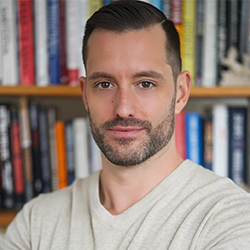Speaker Interview: Ben Lavoie, Plastic Bank

Up next in our speaker interview series, we have Ben Lavoie, CEO of Plastic Bank.
What are your key focus areas and responsibilities?
As CEO of Plastic Bank, I provide clarity and guidance for our social enterprise to translate vision into actionable priorities across our global operations. I nurture an environment where the entire team can show up at their best – in spirit, mind, body, and creativity. I remove roadblocks to finding the white spaces that allow us to expand our environmental and social impact to new markets, products, and clients. In essence, I lead the journey toward our vision of a wasteless world, fostering a high-performance, purpose-driven culture for our members, bankers, and partners across the network.
What are the biggest challenges facing the market today, and how can this be overcome?
One of the biggest challenges our industry faces today is the perception of a lack of integrity across many sustainability efforts. Transparency is our greatest asset to address this concern. At Plastic Bank, traceability is at the heart of our social recycling movement, where we leverage our environmental impact to improve lives and create opportunities for communities to transcend poverty. Our proprietary blockchain-secured platform records traceability and verifies the authenticity of recycling materials as well as our clients’ impact. Bottom line, Plastic Bank accelerates environmental and social impact goals with traceability.
In your opinion, what do you consider to be the greatest development in the last decade?
Plastic credits. They create an equitable, portable solution when waste material holds little economic value, particularly in areas with high poverty and lack of formal plastic waste management infrastructure. They empower collection community members with creditworthiness, entitle them to social benefits and help them afford a better life. We gamify plastic credits for users and leverage our proprietary blockchain technology to verify their environmental and social impact for clients. They are essential to managing plastic waste pollution.
How do you see the sector developing in the next five to ten years?
I expect industry reforms will compel many brands to prioritize ethical practices in their sustainability efforts. New legislation and regulation will drive companies to prove and verify the substitution of virgin materials with authentic recycled materials. They will need to revisit sourcing strategies and prioritize ethical sourcing of materials. I anticipate regulators will reinforce Extended Producer Responsibility (EPR) practices to increase traceability and confront plastic polluters to take on their share of economic and environmental responsibility. Companies’ value chains will be traceable, and their marketing stories will be verifiable. The upshot? Improved industry credibility.
You will be speaking at the AMI Plastics World Expo in North America, could you give us a preview of what you will be talking about?
I will be focusing on how to select responsibly sourced feedstock and address concerns about traceability and sourcing. We all recognize that as demand for sustainable CPG packaging increases, so, too, does media and consumer scrutiny of companies’ ‘recyclable’ and ‘recycled content claims.’ Ensuring traceability through the entire supply chain is becoming critical to success. Our proprietary blockchain technology addresses this challenge and empowers the production of fully traceable recycled plastic feedstock. I’ll also touch upon how brands can authentically communicate their recycling story, and answer CPG clients' questions about traceability throughout their supply chain.
Ben Lavoie will be speaking at the Plastics World Expo in Cleveland, OH, USA.
